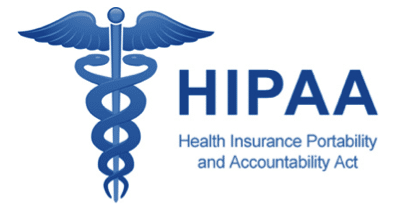
Fertility treatments encompass a range of medical procedures and interventions to assist individuals or couples in achieving pregnancy when facing difficulties or challenges in conceiving naturally. HIPAA sets protective measures to ensure the security of patients' data who undergo this form of treatment.
Purpose of HIPAA in fertility treatment
HIPAA establishes national standards that fertility clinics must follow, ensuring the confidentiality of sensitive data such as diagnoses, treatment plans, and outcomes. HIPAA grants patients control over their information, restricts unauthorized access or disclosure, mandates secure data transmission, and requires clinics to implement secure policies.
Types of fertility information considered to be protected health information (PHI)
PHI includes information related to an individual's past, present, or future physical or mental health condition, healthcare services received, and payment for healthcare services. The specific data that could be collected in the case of fertility treatment includes
- Personal identifiers
- Reproductive and fertility-related information
- Medical history
- Assisted Reproductive Technologies (ART) data
- Donor information
- Psychological or counseling records
- Insurance and payment information
Provisions of HIPAA that fertility clinics must comply with
Privacy rule
Fertility clinics must follow the Privacy Rule, which sets standards for the protection of individuals' PHI. This includes ensuring the privacy, confidentiality, and proper handling of patients' health information, as well as granting individuals certain rights over their own health data.
Security rule
Fertility clinics are required to adhere to the Security Rule, which establishes standards for the security of electronic PHI (ePHI). This includes implementing administrative, physical, and technical safeguards such as using services like HIPAA compliant email and practice management software.
Notice of privacy practices
Fertility clinics must provide patients with a Notice of Privacy Practices (NPP) that explains how their PHI will be used and disclosed, as well as their privacy rights. The NPP must be made available to patients and posted prominently in the clinic.
Related: What is a Notice of Privacy Practices?
Patient consent
Fertility clinics must obtain patient consent or authorization for the use and disclosure of PHI in certain situations, such as for research purposes, marketing communications, or when sharing information with third parties outside the scope of treatment, payment, or healthcare operations.
Business associate agreements
If a fertility clinic engages the services of a third-party vendor or business associate that will have access to PHI, a written agreement, known as a Business Associate Agreement (BAA), must be in place. This agreement ensures that the business associate also follows HIPAA requirements and safeguards the PHI they handle.
Related: The 12 steps to HIPAA compliance
Sharing PHI between fertility clinics and other healthcare providers
Fertility clinics can share relevant patient information with other providers involved in the patient's care, such as specialists, primary care physicians, or laboratories, as long as it is necessary for the treatment process. When a third-party entity or business associates, such as external laboratories or electronic health record providers, is engaged, a Business Associate Agreement (BAA) is required.
In cases where sharing information outside the scope of treatment, payment, or healthcare operations occurs, fertility clinics must honor the patients' rights and obtain patient consent or authorization.
Potential consequences non-compliance
The Office for Civil Rights (OCR) within the U.S. Department of Health and Human Services (HHS) is responsible for enforcing HIPAA. In cases of non-compliance, the OCR can impose civil monetary penalties or corrective actions against the healthcare organization.
Beyond the option to report cases of non-compliance with the OCR, patients or individuals affected by a fertility clinic's HIPAA violations may have the right to take legal action against the clinic. This can lead to costly litigation and further potential financial setbacks.
Subscribe to Paubox Weekly
Every Friday we bring you the most important news from Paubox. Our aim is to make you smarter, faster.




